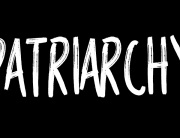In Leadership:
I was recently asked to describe how the traditional masculine model of being hierarchical, territorial, competitive and acquisitional in leadership was a problem. The person asking me was a bit puzzled by my assertion that those behaviours tend not to lend themselves to long-term success. In his view most businesses are successful because of them.
I asked him a simple question: have you ever seen teams perform to the best of their abilities when they apply these principles in their relationships?
If individuals within a team are territorial and hierarchical, how does that affect the rest of the team? When one or more people are entrenched in a position of power, what happens to the dynamics in the team?
Well, was the response, there’ll be more conflict, probably some challenges with trust. But isn’t being competitive good for a team? His opinion was that you just have to take the good with the bad.
Do we? Organisations where these behaviours are core to their culture, create an unhealthy environment where employees experience more and more stress. This is costly.
Being territorial is not just about the geographical landscape. I can be emotionally territorial, another word for that is possessive. In that mode I withhold information to preserve my power in the group. My tendency then is to engage in protective behaviours that can stifle a teams’ growth.
Strict hierarchies inhibit a team or organisation from being responsive and creative. Being authoritarian holds a team back, because it is based on behaviours that tend to evoke fear, rather than trust.
Being competitive results in being too task-oriented, at the expense of relationships and communication. Again, the result is that the team or organisation becomes unhealthy.
As a leader in the 21st century, isn’t my main concern to have a healthy, sustainable team, and therefore organisation?
My vision as a leader, and the actions that support that vision, go beyond the immediate commercial gains, that the traditional ideals of masculinity provide. As a leader, I’m looking to develop my organisation through three spheres. Firstly my capacity as a leader, then my focus on the organisations culture and finally the foundations for peak performance. Being able to keep these aligned to my vision will lead to a responsiveness to change; flexibility, and a resilience that creates and maintains a sustainable, healthy organisation. This can be measured, not just in fiscal terms but also in the areas of culture, morale, job satisfaction and creativity.
I therefore need to cultivate an environment where people learn to be inclusive, where the organisational structure is flatter; where communication and achievements are distributive, that is shared, and finally and most importantly in many respects, it is where there is a high level of co-operation.
Such an organisation, not only focuses on task performance but also includes the importance of relationships, communication and culture as measurable variables.
Great endeavours need Great Leaders to get the best out of people.









Recent Comments